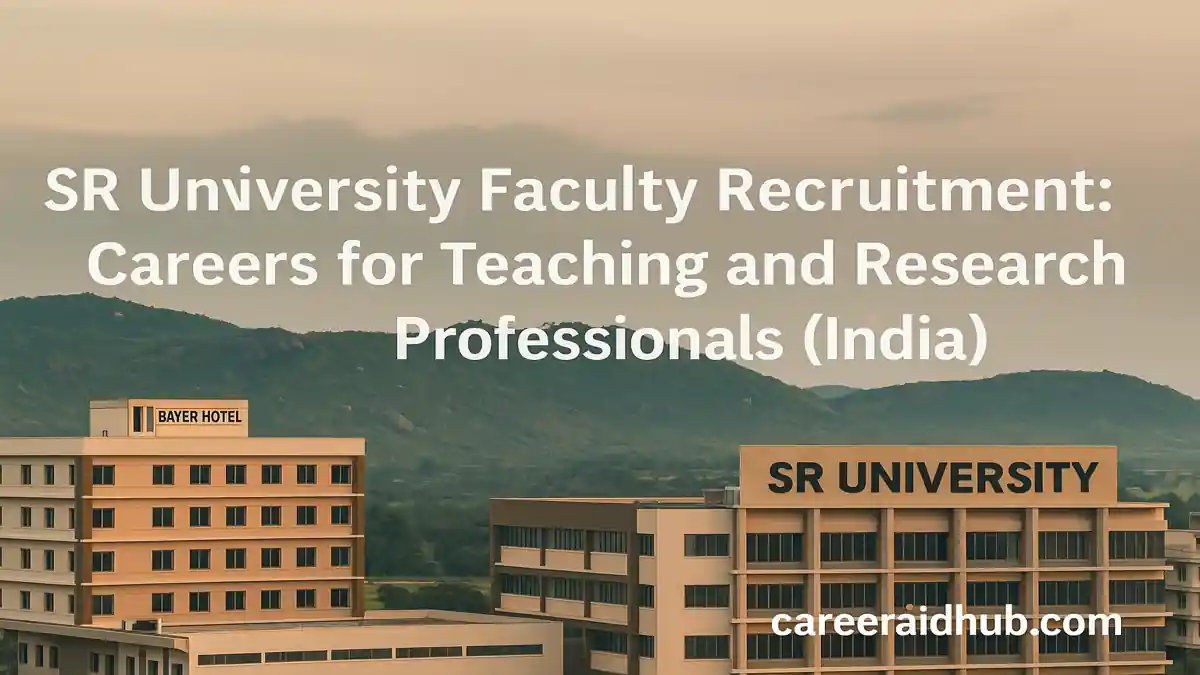What the DEA Program Is—and Why It Matters
The Directeurs d’Études Associés (DEA) program—administered by the Fondation Maison des Sciences de l’Homme (FMSH)—is an international mobility scheme for established researchers. It enables focused research stays in France, typically lasting four to six weeks, hosted by universities, research councils, and specialized centers that work across the social sciences and humanities.
The FMSH DEA Visiting Fellows Program supports short, intensive research stays in France for senior scholars in the social sciences and humanities. Fellows receive a monthly allowance, logistical support, and access to leading French research infrastructures—ideal for fieldwork, archival projects, or method-focused collaborations.
Unlike long sabbaticals, DEA visits prioritize targeted outputs: a set of archives to consult, a field site to access, a method to master, or a collaboration to pilot. Because the stay is short but well-supported, scholars can unlock key resources and return home to consolidate results with their teams.
Funding, Allowance, and On-Site Support
Financial support is streamlined for maximum impact during a brief stay. Fellows receive a monthly allowance of €3,400 intended to cover transport and living expenses. Additionally, FMSH provides visa assistance and coordinates with hosts on
What this means in practice:
-
- International travel and local costs are effectively budgeted within the allowance.
- Host institutions facilitate badges, reading-room access, and introductions to relevant scholars or collections.
- Because visits are short, you can structure a precise work plan—book archive time, schedule interviews, or arrange specialized equipment slots—well before arrival.
Who Should Apply: Ideal Profile and Fit
The program targets university professors and senior researchers whose projects will clearly benefit from French archives, field sites, instruments, or expert networks. Interdisciplinary proposals are welcome, provided the core inquiry sits within the social sciences and humanities and the work is feasible within four to six weeks.
Ask yourself:
-
- Do you need specific collections (e.g., national archives, media repositories, museum holdings) located in France?
- Would comparative fieldwork in a French region or access to French-speaking communities materially advance your study?
- Could a short methods residency—for example, training in a particular digital humanities workflow—unlock your next publication?
If you answer “yes” to one or more, DEA is a strong fit.
Duration and Planning the Visit
Length: Usually 4–6 weeks in a single
Timing: Although the program runs annually, schedules vary by host availability, public holidays, and archive calendars. Therefore, define a date window broad enough to accommodate institutional closures and to secure appointments with curators or lab managers.
Choosing a Host Institution
A competitive application rests on a strong host match. Consider the following:
1) Methodological Fit
Identify centers with the exact methods or sources you need—GIS labs for urban studies, data services for survey harmonization, or specialist collections for area studies.
2) Feasibility and Access
Ask potential hosts about reading-room quotas, equipment booking rules, and permit lead times. For interview-based work, confirm local ethical review requirements and suggested community contacts.
3) Collaborative Value
Hosts appreciate reciprocity. Offer a departmental talk, a workshop on your method, or a data-cleaning template others can reuse. Small, concrete contributions often clinch internal support.
What to Prepare Before You Apply
Because the program serves senior researchers, reviewers expect clear, evidence-based planning:
-
- Concise project abstract (aims, novelty, method).
- Work plan with daily or weekly milestones—e.g., “Week 1: archive X, fonds Y; Week 2: archive Z, oral-history sessions 1–3.”
- Host confirmation (email exchanges or endorsement) indicating access feasibility and institutional support.
- Outputs list—articles, datasets, protocols, or public talks—with a realistic timeline for submission or release.
If your project uses sensitive data or involves human participants, outline ethics compliance and data governance (storage, anonymization, consent).
Application Components and Practical Tips
While exact portal fields are subject to change, successful dossiers typically include:
-
- CV emphasizing recent publications and relevant methods.
- Project statement detailing the why, what, and how of the visit.
- Host information and any letters or emails indicating willingness to receive you.
- Schedule aligned with known archive or lab calendars.
Submission tips:
-
- Keep prose precise and results-focused.
- Translate specialized methodology into plain language where possible; explain what success looks like in six weeks.
- Use headings and bullet points to help reviewers navigate quickly.
What You Can Do During the Stay
Because the timeframe is compact, think in terms of high-yield tasks:
-
- Archival sprints: Prioritize unique materials unavailable digitally; digitize with permissionand log metadata meticulously.
- Field interviews: Batch interviews by neighborhood or institution; schedule transcription during the visit to flag follow-up questions.
- Method adoption: Shadow lab workflows; take reproducible notes and request sample scripts or templates for your home team.
- Archival sprints: Prioritize unique materials unavailable digitally; digitize with permission
Before leaving, debrief with your host to identify next steps—co-authored pieces, data-sharing agreements, or a return micro-workshop online.
After the Fellowship: Turning Data into Outputs
Effective fellows plan a post-visit production phase. Within two weeks of returning:
-
- Inventory your materials and update your data dictionary.
- Draft a brief memo summarizing findings, gaps, and proposed publications.
- Divide tasks across your team—cleaning, translation, coding, visualization.
- Schedule a check-in with your host for feedback and to coordinate co-authorship.
These habits accelerate manuscripts and make collaboration sustainable beyond the mobility window.
Indicative Timeline for the 2026 Round
Historically, application windows open in the autumn and close in late November for the following year’s visits. To stay ahead, prepare your materials by September; line up host endorsements and archive bookings by October. For final dates, we will update soon once FMSH posts the confirmed schedule.
Quick Reference
|
Feature |
Details |
|
Program Name |
FMSH DEA Visiting Fellows Program |
|
Host Country |
|
|
Funded By |
Fondation Maison des Sciences de l’Homme (with host support) |
|
Duration |
Typically 4–6 weeks |
|
Study Mode |
Short, on-site research residency |
|
Eligibility |
Senior scholars (university professors/senior researchers) in the social sciences and humanities |
|
Financial Support |
Monthly allowance (~€3,400) for transport and living; visa/logistics support; host-facilitated access |
|
Fields of Study |
Social sciences and humanities (interdisciplinary projects welcome) |
|
Deadline |
28 November 2025 |
|
Official Website |
How to Strengthen Your Submission (Actionable Tips)
-
- Anchor your need in place: Explain why France specifically—name archives, collections, labs, or interlocutors.
- Quantify throughput: Pages/day, interviews/week, or datasets processed per session.
- Plan diffusion: Outline exactly how you will share methods or train students at home.
- Show feasibility: Attach preliminary permissions or reading-room confirmations where available.
Conclusion
The FMSH DEA Visiting Fellows Program provides the right support at the right scale for scholars who can translate weeks of concentrated access into lasting academic value. If your next article, dataset, or collaborative project depends on French resources or expertise, align a precise plan with a suitable host and submit via the official call.
Frequently Asked Questions (FAQs)
It funds short research residencies in France for senior social sciences and humanities scholars. Moreover, fellows pursue targeted projects with host institutions.
Senior researchers or university professors in social sciences or humanities may apply. Additionally, proposals must show strong scholarly merit and a clear fit with French resources.
Visits typically run four to six weeks. Consequently, applicants should propose a focused work plan achievable within this compact residency.
Fellows receive a monthly allowance intended for travel and living costs. Furthermore, hosts coordinate practical access to libraries, archives, or laboratories.
Yes. FMSH supports visa procedures and, additionally, liaises with the host institution to streamline arrival, workspace, and research access.
Eligible fields include the social sciences and humanities, including interdisciplinary projects. However, proposals must center on clearly defined research questions.
First match your methods and sources to specific centers. Then confirm feasibility—archive bookings, ethics needs, and supervision—before securing a host endorsement.
Provide a concise project statement, CV, work plan, host confirmation, and expected outputs. Moreover, include ethical compliance details where relevant.
Prepare materials early and anticipate an autumn submission window. Therefore, finalize host arrangements and archive appointments well in advance; we will update soon.
Fellows should deliver concrete outcomes—articles, datasets, workshop contributions, or methods transfer. Additionally, they should document capacity building for their home institutions.
Premium Mentorship for a Stronger Application
- Premium Mentorship: personalised 1:1 guidance for this and similar opportunities
- In-depth review of your CV, academic profile, and key statements
- Aligned with international selection criteria so your profile matches what panels expect
- Stronger, more compelling narrative for highly competitive calls
- Step-by-step support from opportunity mapping to final submission (fee-based)










